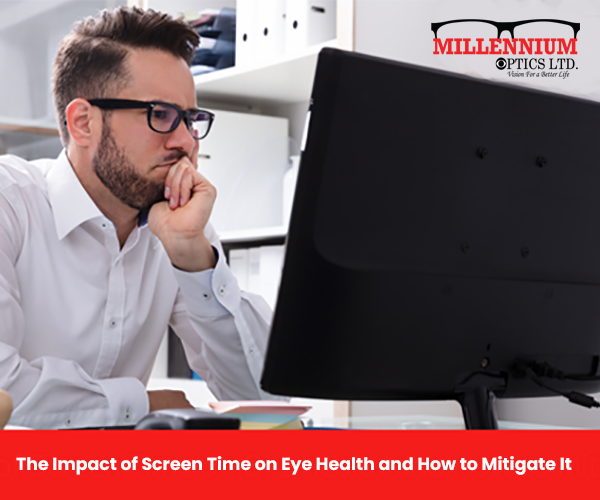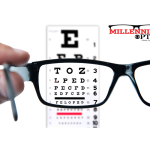
November 7, 2024 7:00 am
In today’s digital era, screens are everywhere. From smartphones and tablets to computers and TVs, prolonged screen time has become part of daily life. However, extended exposure to screens can have serious implications on eye health, including digital eye strain, dry eyes, and potential vision deterioration. For residents in Kampala, reliable opticians like Millennium Optics provide valuable insights and solutions to combat these issues.
How Screen Time Affects Eye Health
- Digital Eye Strain: Also known as computer vision syndrome, digital eye strain arises from prolonged screen use. Symptoms include blurred vision, headaches, and neck pain, which stem from the eyes constantly adjusting to changing light and screen refresh rates.
- Dry Eyes: While using screens, people tend to blink less, which leads to reduced moisture on the eyes’ surface, causing dryness. Dry eyes can feel itchy, irritated, and may even lead to further complications if untreated.
- Potential Vision Damage: Although research is ongoing, excessive screen time may contribute to vision issues over time, particularly for children whose eyes are still developing.
- Blue Light Exposure: Devices emit blue light, which can disrupt sleep patterns and cause eye strain. Some studies suggest prolonged blue light exposure might contribute to macular degeneration, a serious condition affecting vision in older adults.
Mitigating the Impact of Screen Time
Fortunately, there are several effective ways to mitigate the effects of screen time:
1. Follow the 20-20-20 Rule
The 20-20-20 rule is a simple but effective technique to reduce eye strain. Every 20 minutes, look away from your screen and focus on an object 20 feet away for at least 20 seconds. This helps relax your eye muscles, reducing the strain caused by prolonged screen focus.
2. Use Screen Filters and Blue Light Glasses
Blue light glasses or screen filters can help reduce exposure to blue light. Opticians in Kampala offer options at Millennium Optics that cater to both prescription and non-prescription needs. Such protective eyewear is ideal for those who spend long hours on digital devices and can be especially helpful for nighttime screen use.
3. Adjust Screen Settings
Reducing screen brightness and increasing contrast can help minimize eye strain. Adjusting text size and positioning the screen at an arm’s length can also ease the burden on your eyes, allowing for a more natural and comfortable viewing experience.
4. Regular Eye Check-Ups
Routine eye check-ups are crucial for monitoring and maintaining eye health. Visiting trusted opticians is essential, especially if you experience persistent symptoms of eye strain. For those in Kampala, Millennium Optics provides comprehensive eye exams to detect any vision changes early, ensuring timely intervention.
5. Limit Screen Time and Take Breaks
While screen time is unavoidable for many, reducing non-essential use can make a significant difference. Encourage breaks for children, especially, as their developing eyes are more susceptible to damage from prolonged exposure. Consider setting aside screen-free periods throughout the day, allowing your eyes time to rest and recharge.
Conclusion
The effects of extended screen time on eye health are substantial but manageable with the right practices and support. By following the tips mentioned, you can protect your eyes and enjoy screens in a balanced way. If you’re experiencing digital eye strain or simply wish to improve your eye health, visit Millennium Optics in Kampala. Their knowledgeable staff provides top-quality optical solutions, helping you select the best eyewear to mitigate the effects of screen exposure. Prioritizing eye care now can save you from long-term vision issues later.





